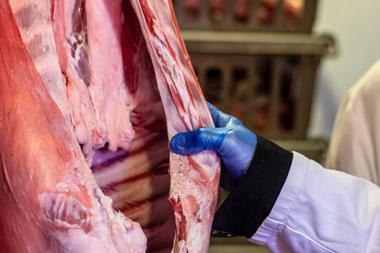
FSA experts have raised serious concerns over the limitations of a report it has used to deny the cancer risks from the use of nitrites in processed meats such as bacon and ham, The Grocer can reveal.
Minutes from a closed session of the agency’s Committee on Toxicity (COT), held on 25 March this year, reveal its members raised concerns over why animal studies were excluded from a £90,000 literature review commissioned by the body from consultancy RSM.
Committee members raised fears that “key studies may have been missed” from the review, which the FSA has repeatedly used to counter claims by leading scientists, including its own former food safety tsar, that warnings should be placed on the products in the same way as products such as tobacco.
The FSA has now published documents obtained under the Freedom of Information Act by the Coalition Against Nitrites, which includes Professor Chris Elliott who led the government review into the horsemeat scandal and the authors of a landmark WHO report 10 years ago which claimed the ingredient is a cancer risk.
The FSA had insisted the RSM report provides evidence that “there is little or no new evidence” linking nitrite-cured meats to the disease.
However, the minutes make clear that the COT has called into question the rigour of the report before its publication.
After the RSM UK consulting team delivered a presentation on the literature review, the minutes reveal, COT committee experts raised a series of questions over the strength of the evidence in its review.
Read more: Why hasn’t nitrite-free bacon taken off despite health risk?
RSM replied that since enough human epidemiological and in vitro data was available, animal models were excluded “due to time and resource constraints”, a decision it said “had been discussed and agreed with the FSA”.
“The exclusion was acknowledged as a limitation of the project, since key studies might have been missed, and was suggested as a topic for future research,” the minutes add.
“Members highlighted that animal in vivo studies should be considered in future research concerning the safety of nitrates and nitrites,” they go on. “This would avoid restriction of the data to in vitro and epidemiological studies, which may not provide the extent of the potential harmful effects.”
Further questions concerned the decision to rank evidence in the report based on “journal impact factors”, or the number of times evidence had been cited, rather than scientific quality.
“Members raised the limitation of using the impact factor of a journal to rank studies. RSM acknowledged that ranking papers based on the impact factor of their journal was a key weakness of the literature review,” the minutes reveal.
The FSA has also confirmed, in a separate FOI response, that it did not consult the European Commission or French food safety agency ANSES – both of which have formally recognised the link between nitrites in processed meats and cancer.
The Coalition Against Nitrites has now called on the FSA to retract its “rapid review” claiming the minutes show it is “fundamentally flawed, incomplete and potentially misleading”.
The FSA’s chief scientific adviser, Professor Rick Mumford, told The Grocer the FSA’s review has been “scrutinised” by the independent COT as part of his defence of the FSA’s actions.
“These minutes confirm what many of us feared,” said Elliott, professor of food safety at Queen’s University Belfast.
“The FSA’s rapid review was narrow, selective and incomplete – and the expert members of the Committee on Toxicology share my concerns.
“The FSA should withdraw this report immediately and commission a full, transparent assessment that reflects the totality of the science.”
Earlier today Elliott and Belfast biology professor Brian Green wrote a position paper accusing the FSA of becoming a “pale imitation” of an evidence-based policy maker.
A spokesperson for the Coalition Against Nitrites added: “These are bombshell revelations that leave the FSA’s stance on nitrites completely untenable. The agency has been reassuring consumers that nitrites in bacon and ham pose no significant risk – yet its own scientific advisers warned the report underpinning that position had major flaws.
“It is unacceptable that the FSA continues to rely on a review its own committee questioned so fundamentally.
“The agency must retract this report and reset its approach in line with the European Commission and France’s ANSES, both of which have already tightened nitrite limits. The UK is now out of step with both science and its European neighbours.”
An FSA spokesperson said: “We know that processed meat increases the risk of cancer, but the exact cause of these risks remains unclear. Our advice to consumers is to limit their consumption of processed meat. Our position on nitrates is there’s not enough evidence that removing them would make processed meat safer. We keep this position under review, and this piece of work was just one part of that process.
”The publicly available minutes capture a number of points the COT made about this peer reviewed study. Chief among these were comments on the limitations of the scope of the review, which were pointed out within the report itself.
The review did not identify any new evidence from recent human studies that changed our current understanding. We have also reviewed the risk assessments from other countries, including the EU and have not identified new evidence to prompt us to conduct a full review.”
”



















No comments yet